1. Dragon Quest Changed My Life
For this first interview, I'm talking to Hino-san of LEVEL-51, the company that's working on Professor Layton and the Mask of Miracle, a game scheduled to be released on the same day as the Nintendo 3DS system in Japan. Hino-san, thank you for coming today.
No, thank you for having me. 1 LEVEL-5 Inc.: A game software development company headquartered in Fukuoka City. Akihiro Hino is its CEO.
Where age is concerned, you and I are about nine years apart. However, I think we have many things in common, including experience in programming video games, coming to oversee entire production teams, and in finally beginning to manage companies.
I see, yes, I was also a programmer.
To start, then, what was it that led you to make programs?
I first took an interest in this world in the fourth year of primary school. At the time, there was a computer game world called micon2. Through it, I discovered that this was what was used to make games, and I started reading books and magazines, thinking that someday I wanted something like that. 2 Micon: A Japanese term which is an abbreviation for microcomputer.
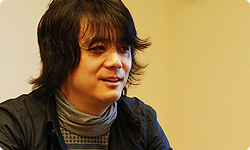
When you were in the fourth year of primary school, I must have been in my first year at college. The word pasokon (personal computer in Japanese) didn't yet exist then.
No, it didn't. Even now, something that really left an impression on me was an article about a computer game called Wizardry3 that ran in a certain magazine. There was a screenshot of a treasure chest with the words "What will you do?" written by it. But at the time, Space Invaders4 was virtually the only thing of that nature known widely in Japan. We really didn't know much about computer games then, and I was a kid: I didn't have any idea about what to do with a keyboard. So to me, it was like "What do you mean, 'What will you do?' What SHOULD I do…?!" (laughs) 3 Wizardry: A 3D dungeon RPG for the personal computer, released in 1981. Known as the ancestor of computer role-playing games. 4 Space Invaders: An arcade game released in 1978.
Even if you knew about the lever and buttons from Space Invaders, when you heard "What will you do?" from a computer game, you had absolutely no idea what to do. Am I right?
Absolutely. So I was very intrigued. I thought, "How in the world do you play this game?!"
In other words, you saw that screenshot and got all excited imagining how it might be played, and that's really where you got your start.
That's right. I was in my first year or so at secondary school when I actually bought a computer.
So, three years after you'd started to take an interest in them.
I saved up the money I got for New Year's and finally managed to buy one. (laughs) I have lots of relatives, and at New Year's, at least, I could really rake it in. (Note: It is customary in Japan for children to receive money gifts ("Otoshidama") by their parents and relatives during the first few days of the New Year.)
I see. So, if you hadn't had a lot of relatives, it's possible that the world might never have seen the Professor Layton series.5 (laughs) 5 The Professor Layton series: Puzzle-solving and Adventure. The first game in the series, Professor Layton and the Curious Village was released for the Nintendo DS system in February 2007 in Japan and was followed by three subsequent games. (In Europe three games have been released so far.)
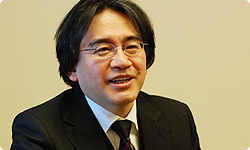
Yes, that's correct. (laughs) That's when I started to learn programming. For a while, I used a beginner's language called BASIC6 to program. In order to really program, though, I needed machine language7, so after a while I bought a new unit and purchased an assembly language8 called DUAD. 6 BASIC: A type of programming language. 7 Machine language: A programming language which consists of numbers that a computer can directly interpret and execute. 8 Assembly language: A type of programming language which corresponds one-to-one with a language that the computer can interpret and execute directly (a machine language). The language closest to computers.
And that's where your life as a programmer began in earnest. At the time, couldn't you think of any way to get closer to the world of video games that had captured your interest besides writing programs yourself?
I couldn't. Just at that time, Horii-san9 had won in a software programming contest hosted by ENIX Corporation10, so I called ENIX, too, and asked them how I could apply. 9 Yuji Horii: The father of the Dragon Quest series. 10 ENIX Corporation: Founded in 1975. Released the Dragon Quest series and others, merged with Square Co. in 2003, and is presently Square Enix Co. Ltd.
That's funny, because there you are, twenty years later, making Dragon Quest VIII: Journey of the Cursed King11 and Dragon Quest IX: Sentinels of the Starry Skies12 with none other than Horii-san himself. 11 Dragon Quest VIII: Journey of the Cursed King: An RPG released in November 2004 in Japan. 12 Dragon Quest IX: Sentinels of the Starry Skies: An RPG released in July 2009 in Japan for the Nintendo DS system.
I know. (laughs) I'm always talking about this with Horii-san, but the first time I met him, I was really moved.
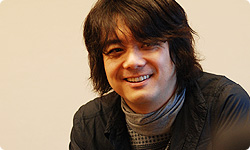
Well, of course. It was a formative experience for you since the man was like a legend to you, as his games had left you with an unforgettable memory, and then there he is, right there in person, and you're working alongside him.
Um… To be honest, I'd always played computer games, so I wasn't really interested in the Famicom system. At the time, there was a lot of computer software with beautiful game screens. When compared to computer games, no matter how you sliced it, I wasn't satisfied with the beauty of the graphics or the amount of content on the Famicom system…
It's true that, at the time, the content that would fit on Famicom ROM cartridges and the image resolution were behind in comparison to what computers could do, so it did feel as though computers were more advanced.
That's right. But then, I played Dragon Quest III13, which was all my classmates at school were talking about. And, how should I put this… It felt as though I'd been whacked over the head. When I'd finished the adventure, I was as moved as if I was attending my graduation ceremony. Up until that point, games had appealed to me as digital devices, but after experiencing Dragon Quest III, I started to look at games as a medium, like movies. That was what led me to reconsider the world of games. 13 Dragon Quest III: An RPG released in February 1988 in Japan for the Famicom system. Known as Dragon Warrior III overseas.
Not only that, although the computer games you'd had so much contact with had better resolution and graphics, this was something much simpler, and yet it had managed to move you that strongly.
That's it exactly. So Dragon Quest III showed me the limitless potential in games.
One of the big things about the Dragon Quest series was that, before then, the only RPG games had been for computer, and it popularised those so that anyone could play them. Another was, I think, that that was the era in which games first acquired a social aspect, in a big way. People all over Japan were moving through the adventure at the same time, reporting their progress to each other as they went, and I feel as though it lifted it to the level of a social phenomenon. And for you, Hino-san… You'd seen video games as being inferior to computer culture, and this changed your outlook.
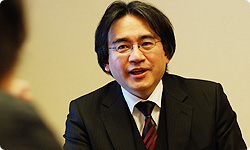
That's right. To be honest, no computer game had ever moved me that much. In short, I learned that the appeal of a game isn't limited to the execution of the graphics, and that a certain way of making a game can move many people, and my interest just caught fire. I guess you could say it sent my interest in making games through the roof.
I suppose you could say it formed your roots as a creator of video games.
Yes. After that, I was just heading out into the working world, but I couldn't forget how moved I'd been by Dragon Quest, so I thought I'd try to make a living out of making games.
In a way, then, Dragon Quest changed your life.
It did. So I joined a company called SystemSoft14. But at the time, they weren't hiring new graduates from among the general public, so I took my graphic tools and RPG and went to pitch myself to them. And they gave me an interview; I thought they were giving me special treatment by meeting with me, but there were about forty others at the site. (laughs) 14 SystemSoft Corp.: A computer-related company established in 1979. At the time, they developed and sold software for computers, including the Daisenryaku series. Their headquarters are in Fukuoka City.
So there was nothing special about it at all. (laughs)
No. (laughs) In the end, only three of us passed; that was how I got into the world of computer games. That said, I left the company after only four months. I'd been assigned to the product management department, you see.
You mean you thought, "Wait, they're not going to let me program?"
Right. It was a department that managed projects, including the programming. Now I understand the appeal in being a producer, but... (laughs) At the time, I didn't think of it as a position that involved creating things… So I changed jobs, transferring to a company called Riverhill Soft15, where I could learn programming the normal way. 15 Riverhill Soft Inc.: A game software development company established in 1982 in Fukuoka City.
What was it about writing programs that you found interesting?
It was fun to have the processes work the way I wanted them to.
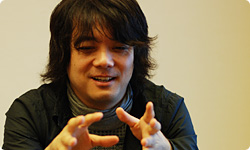
Computers can only do simple tasks, so you build programs by adding multiple things. But if you've made a mistake in even one place, it won't work the way you want it to.
When you've made something like that move the way you want it to, and done it well, it's a terrific feeling.
It's a unique sense of achievement, just as if you'd actually made this world. And that's what you found interesting.
Right. But, I got to where I am now by doing some pretty reckless stuff along the way. It feels as though I've stuck to a policy of being true to my own thoughts.
Even you think you've been reckless?
Oh, I've certainly thought that. When I quit my job at SystemSoft, even I thought, "What am I doing…?" But I thought that, even if I kept on working there, it wouldn't be healthy for me; I didn't care if things got rough, I just wanted to go someplace I liked.
In that sense, your working life started the moment you formed that cycle of sticking to what you liked, writing programs, and feeling that sense of achievement.